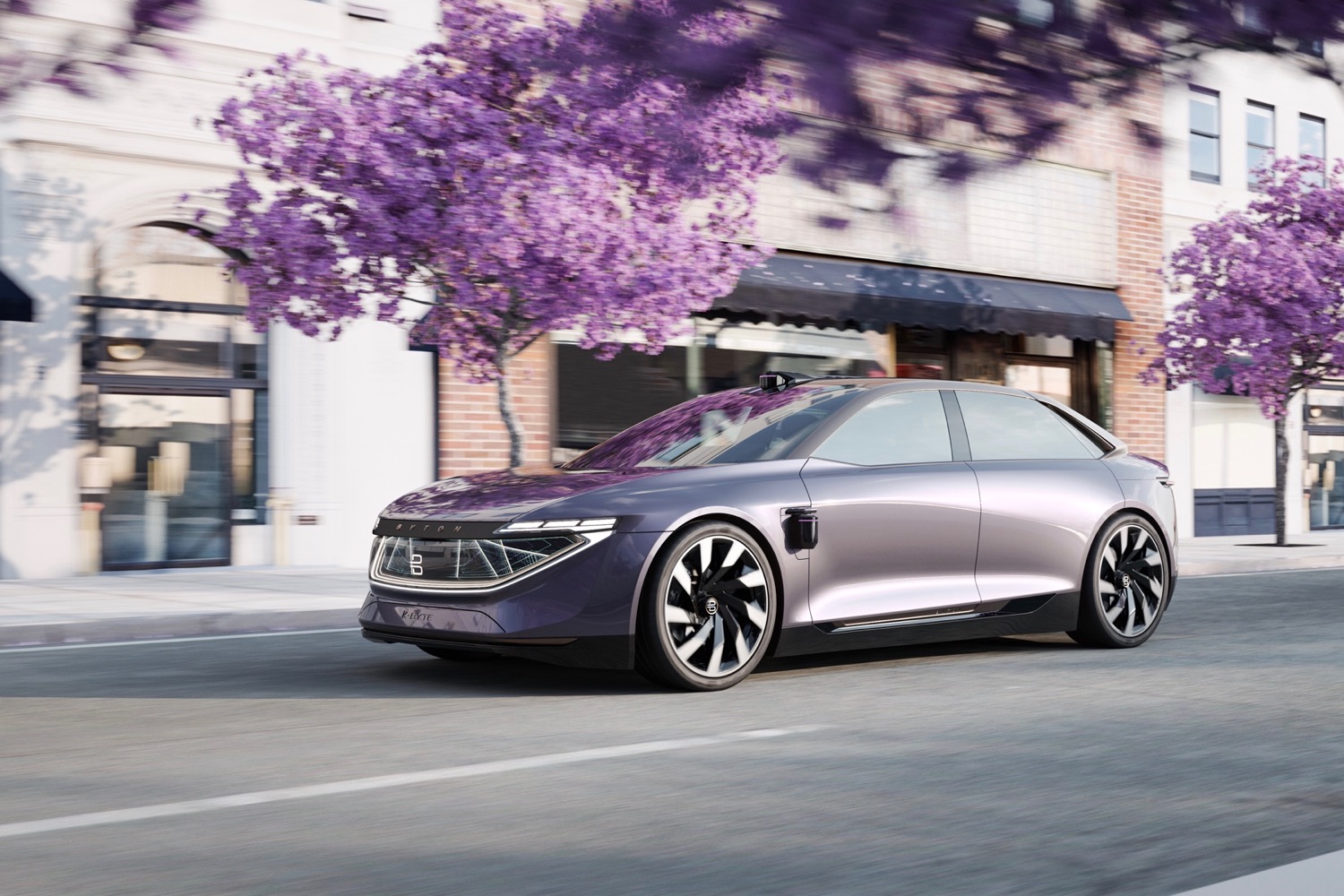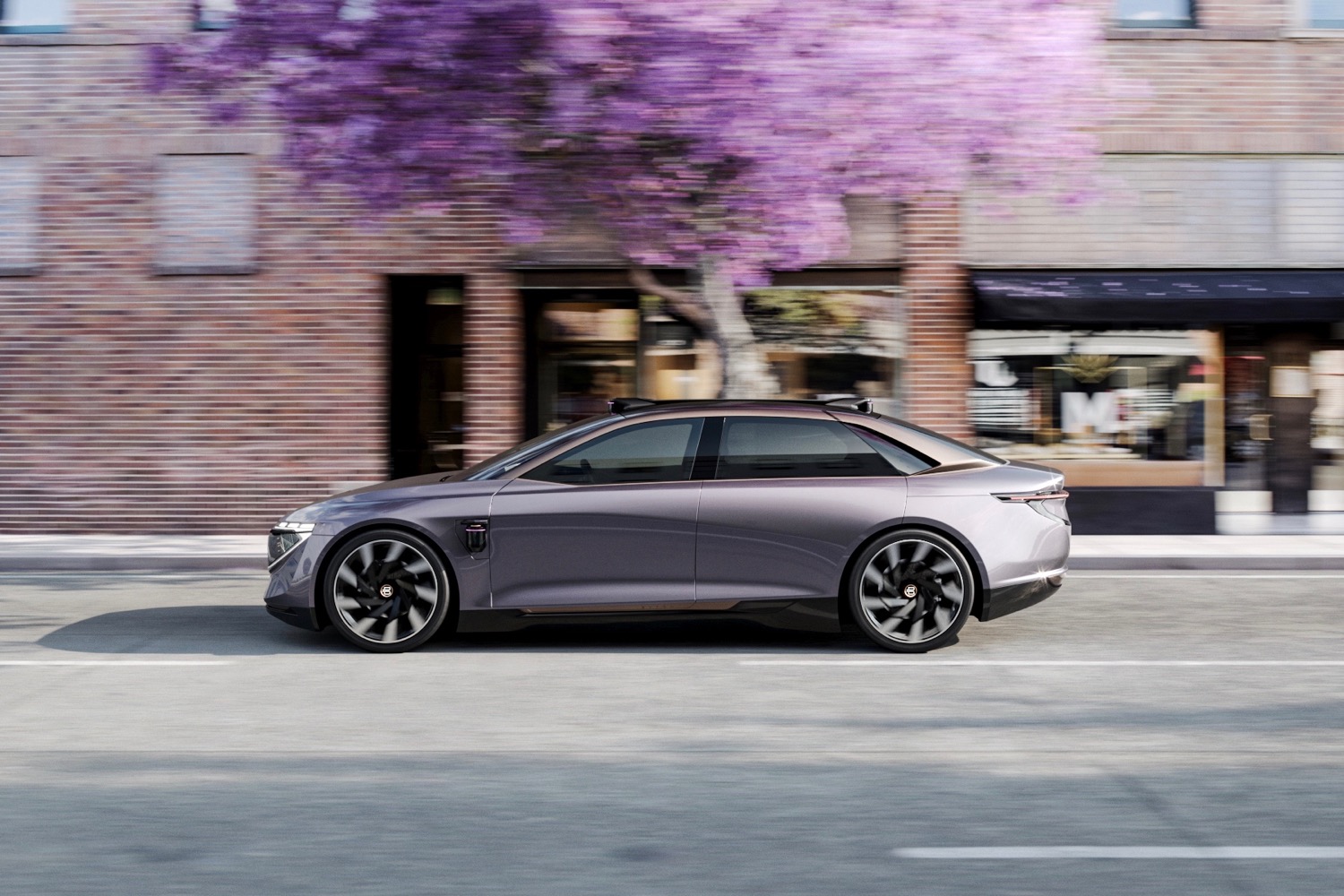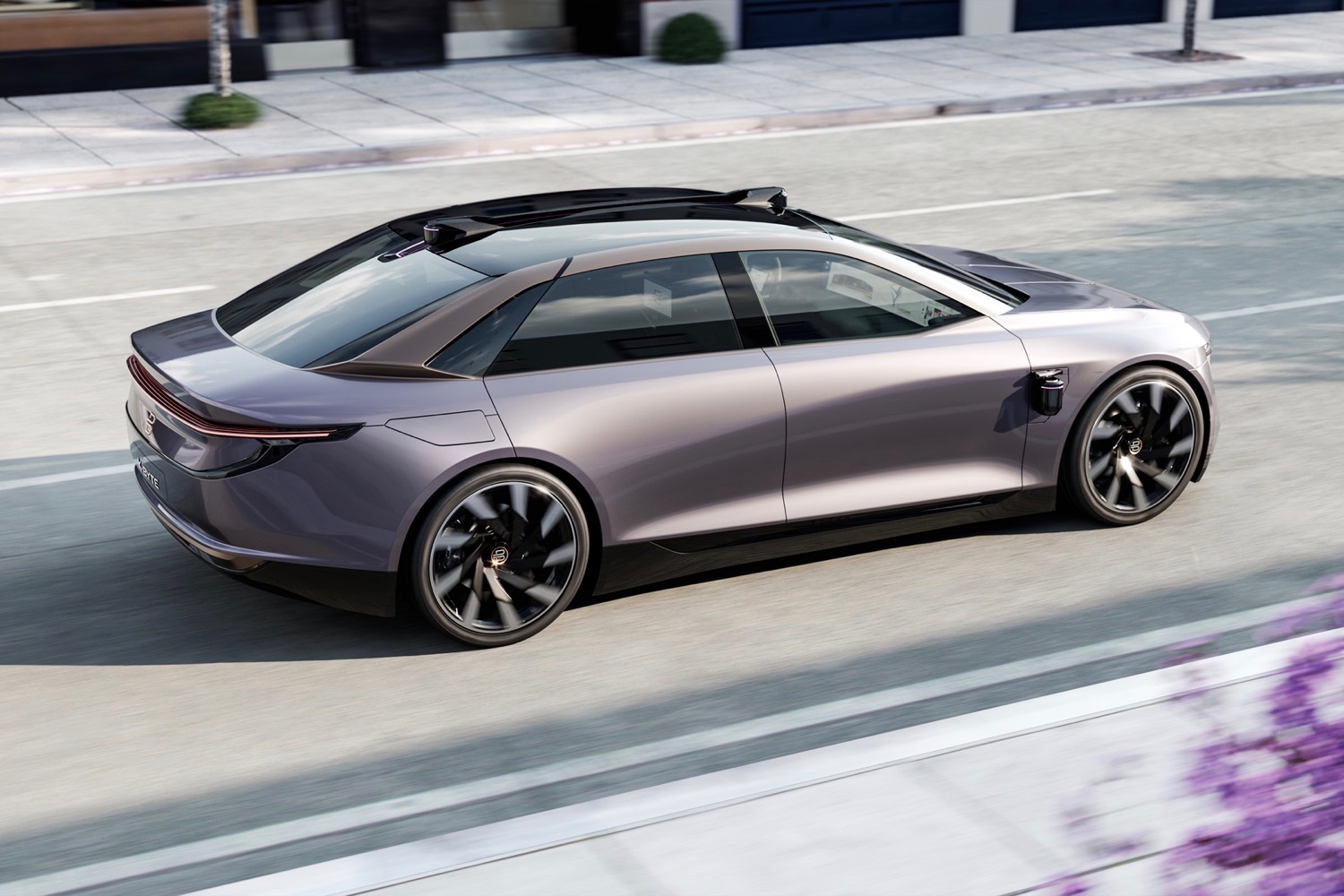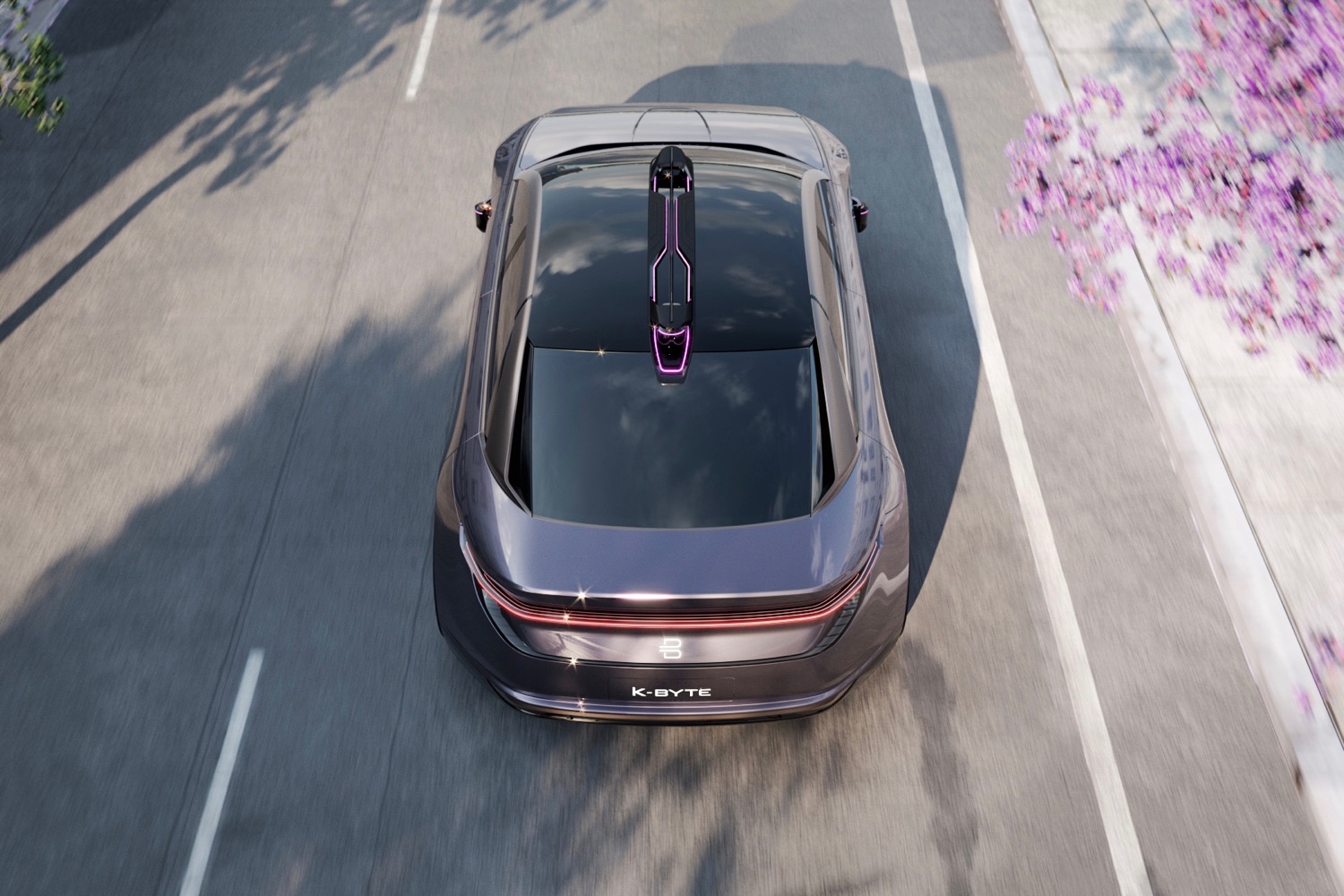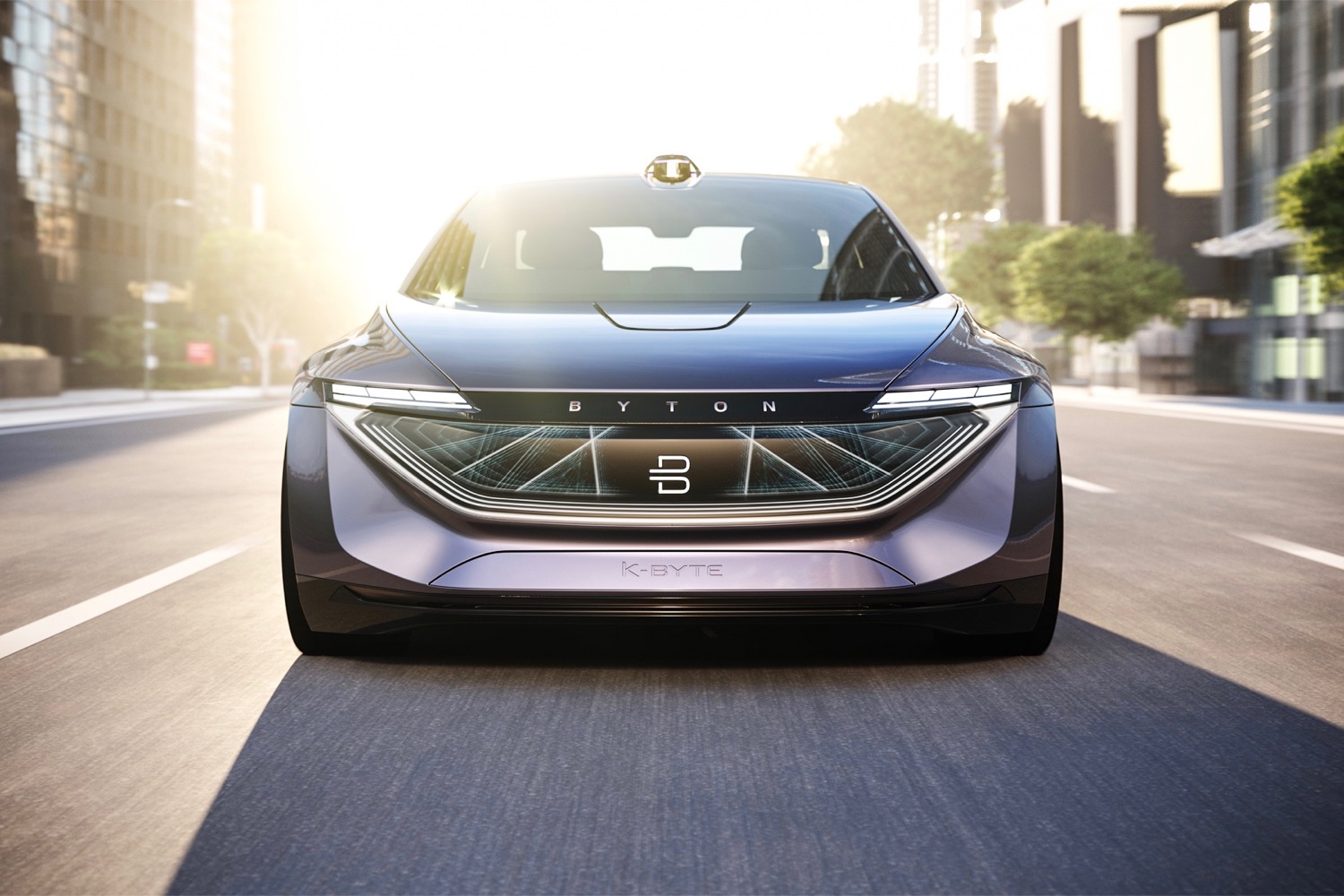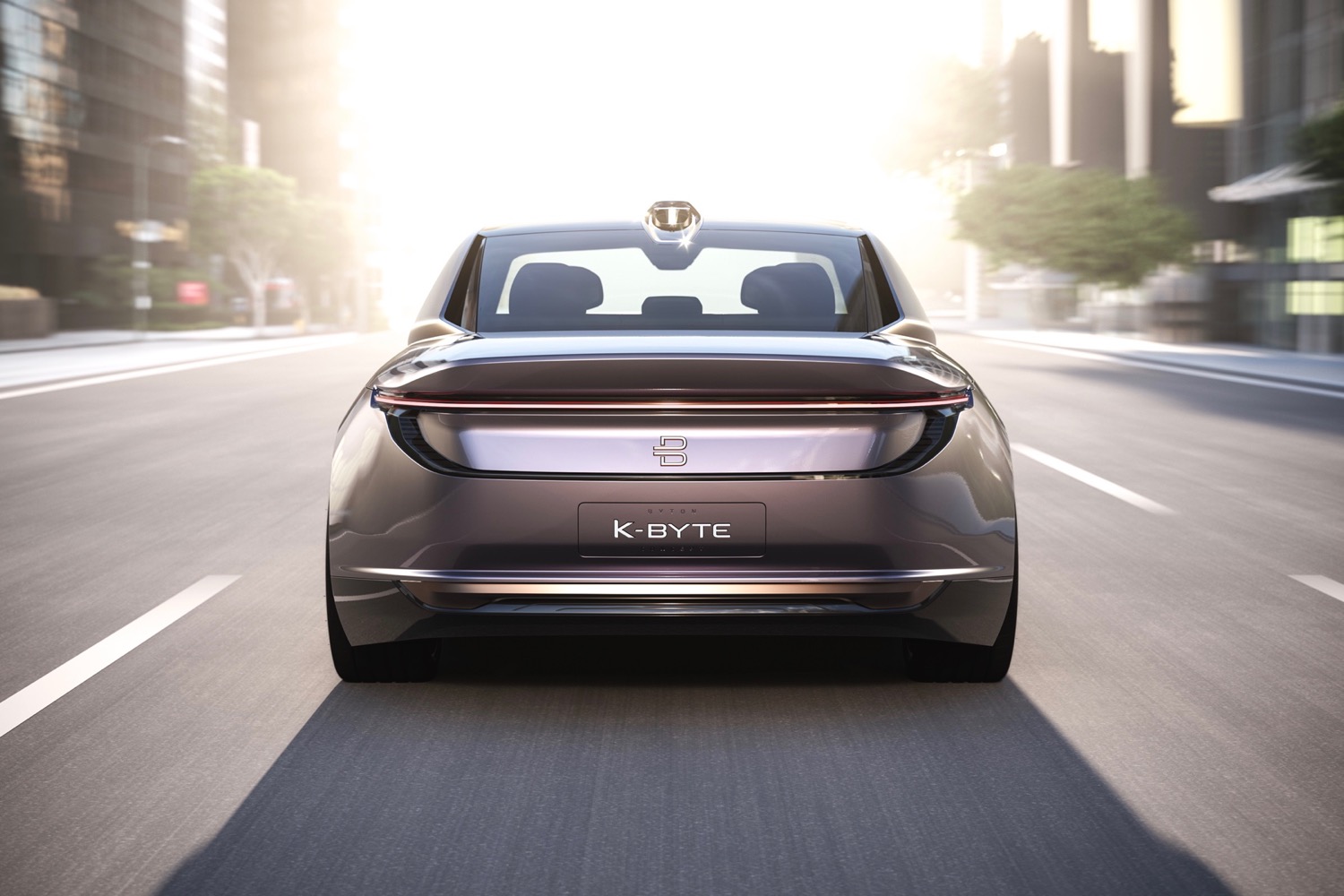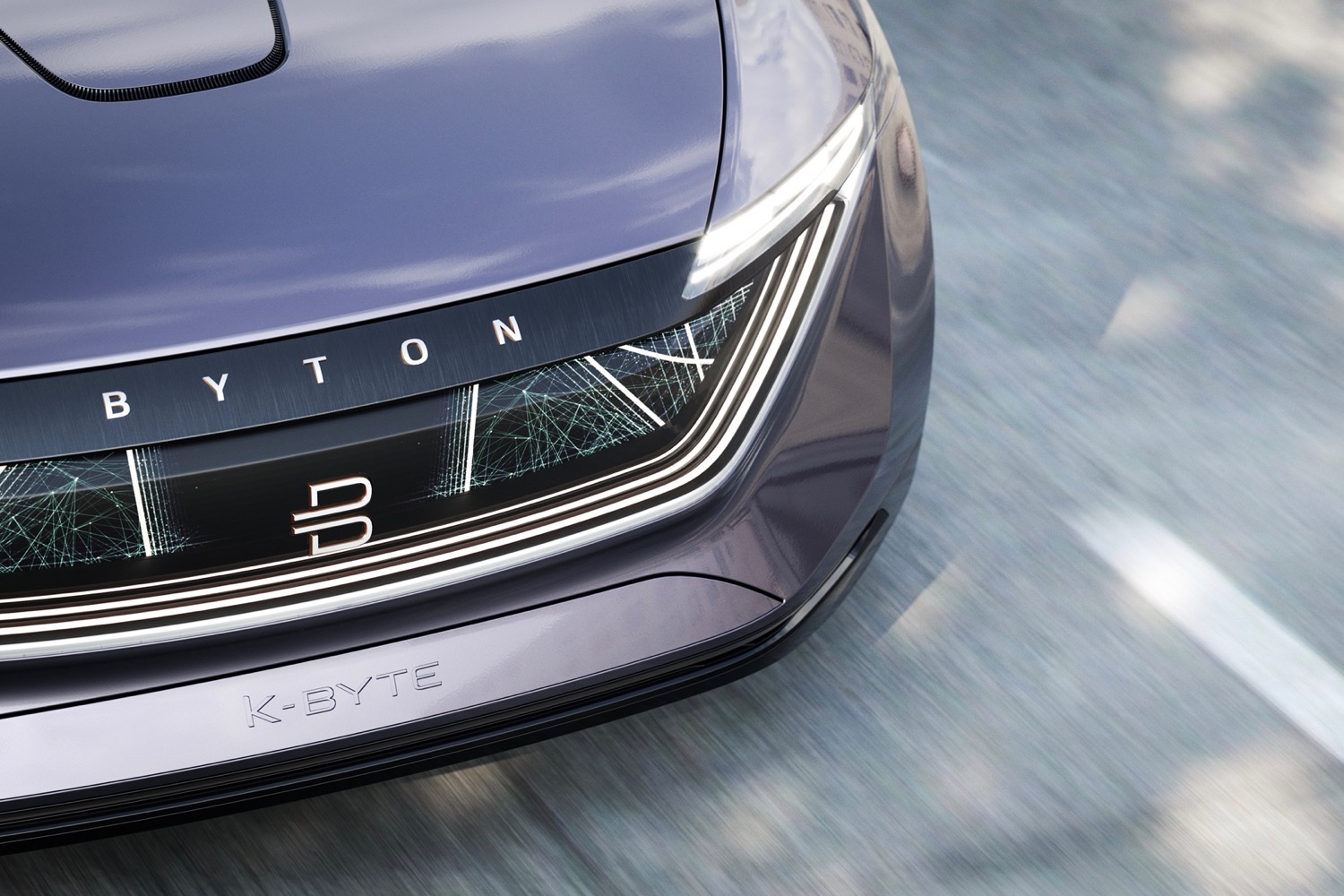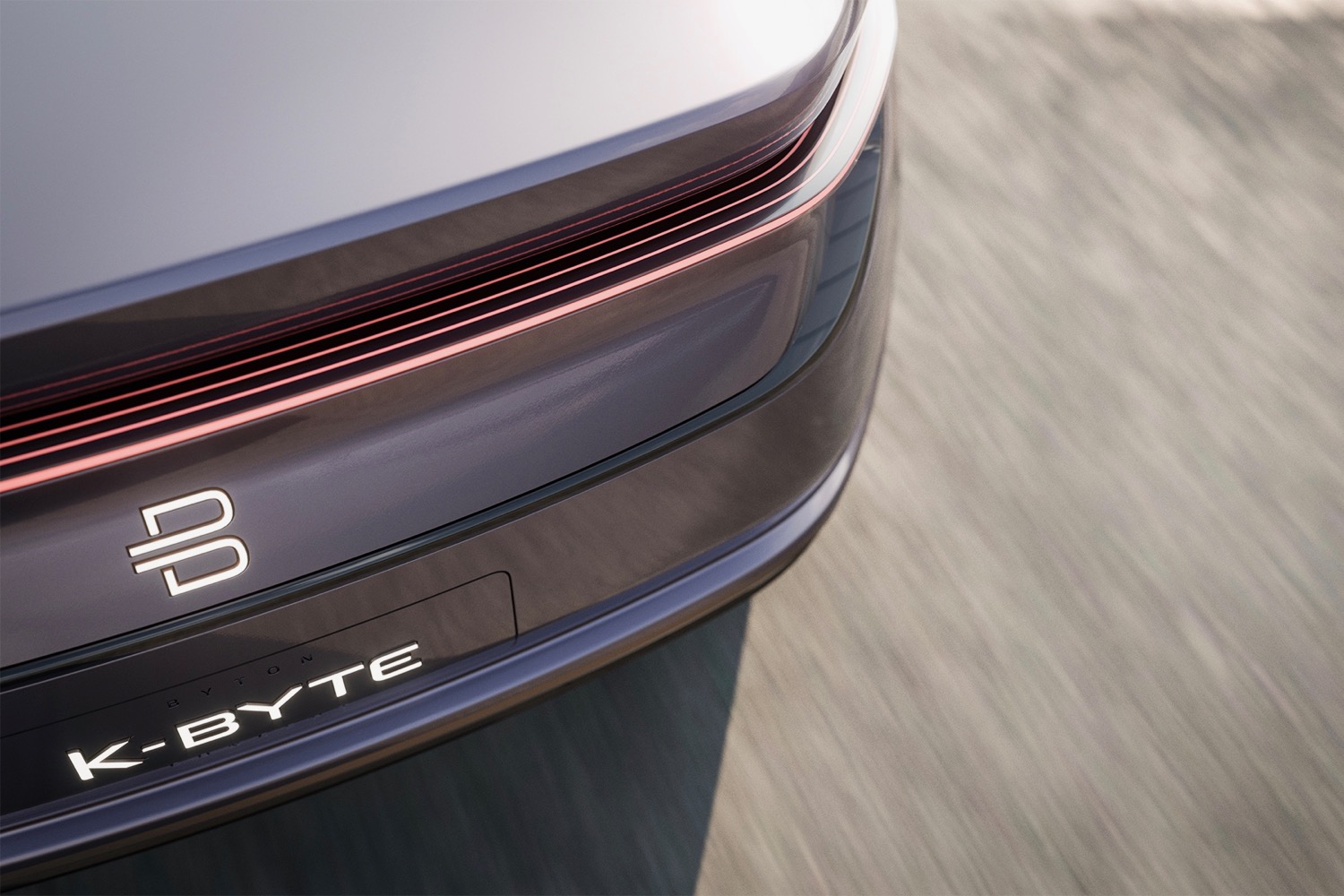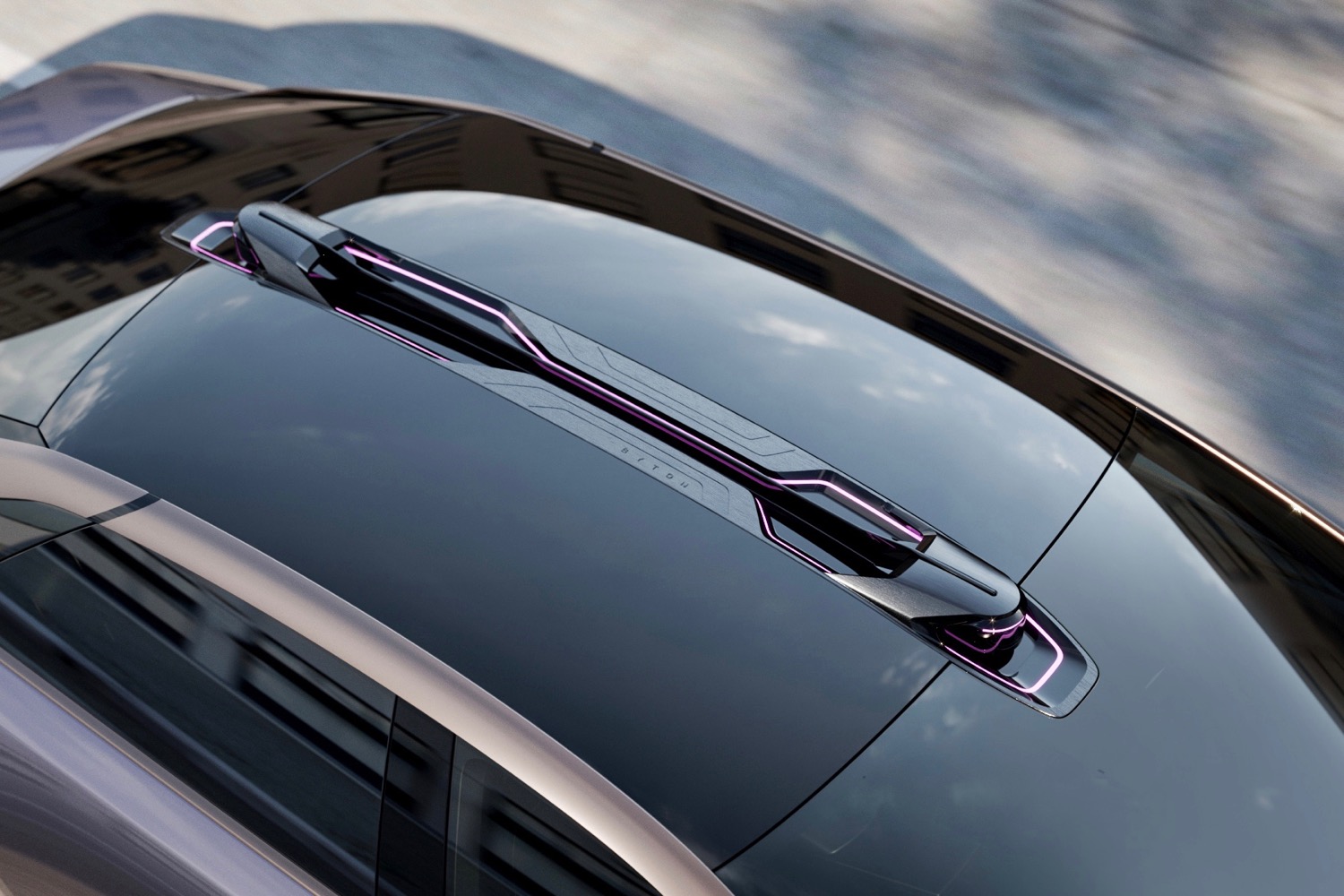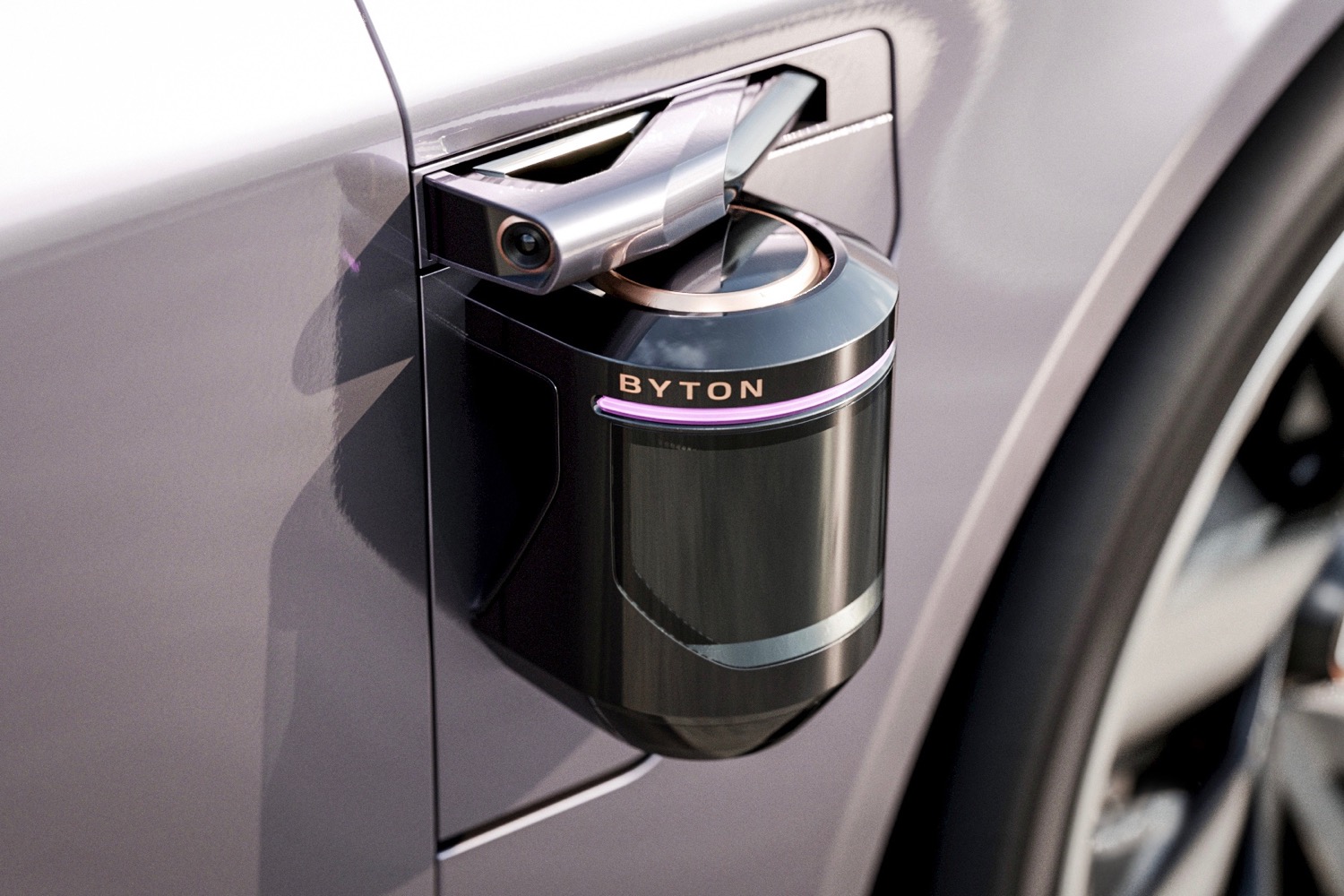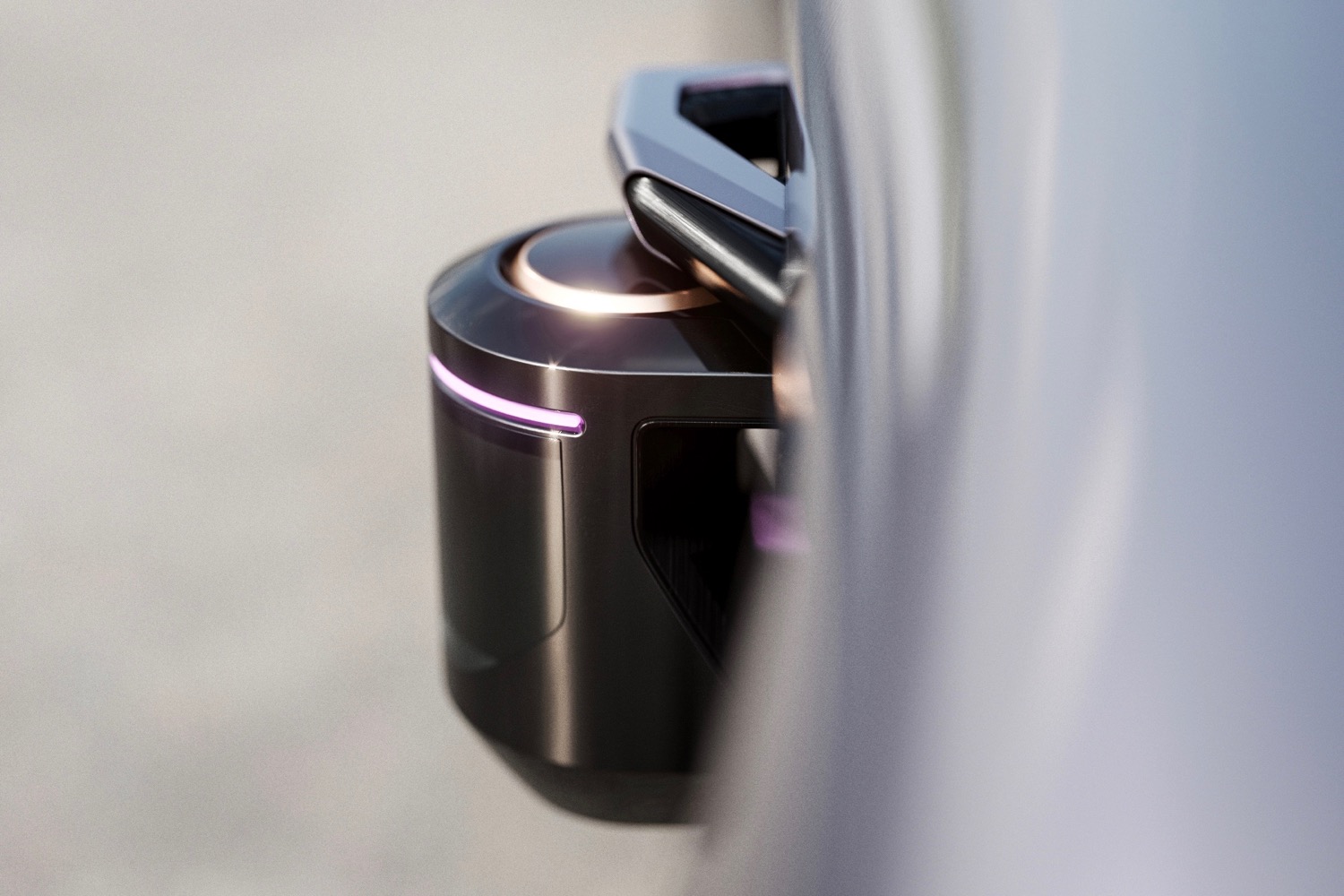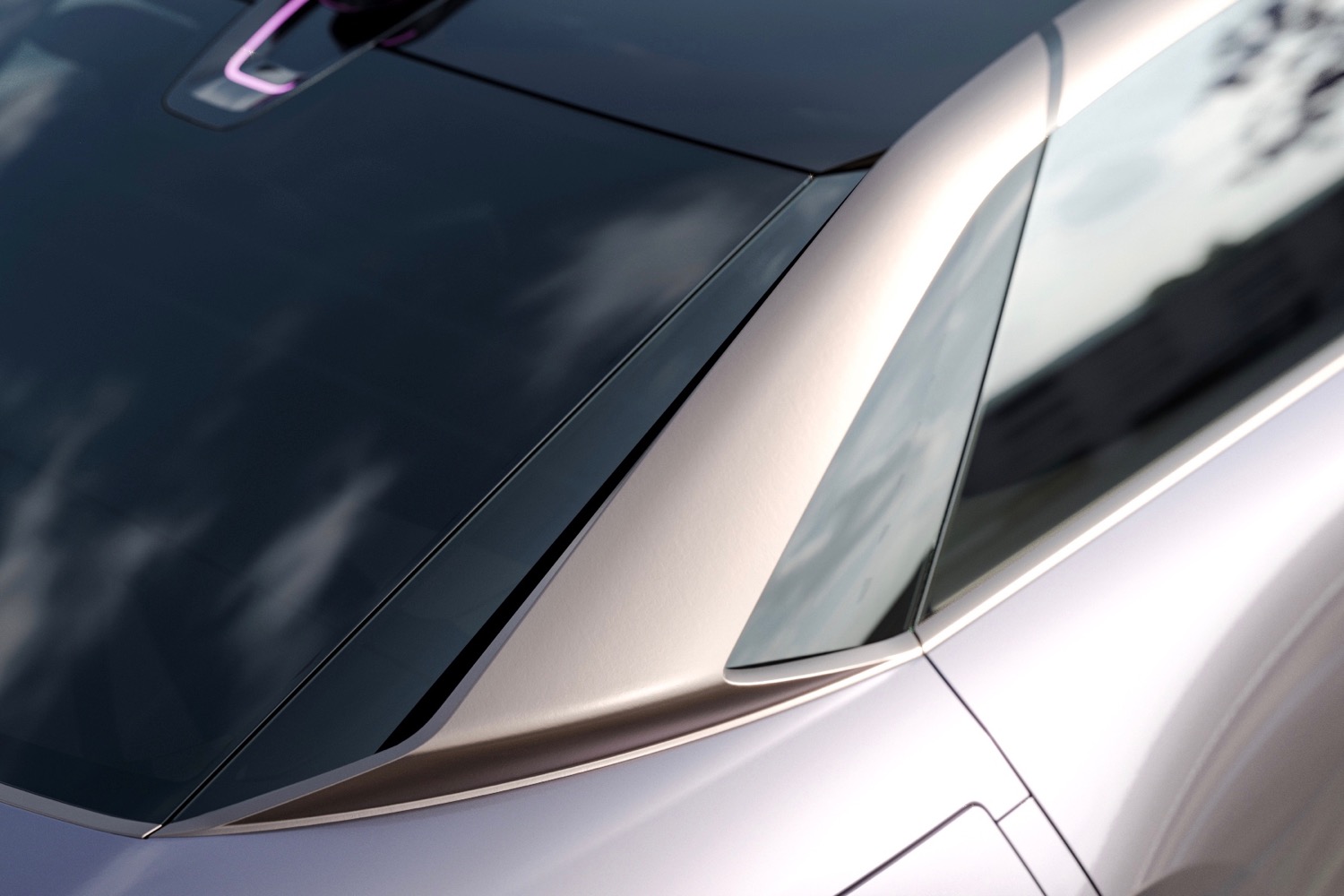Chinese electric-car startup Byton isn’t wasting any time. The company unveiled its first concept car at CES 2018, and now it’s back with a second concept for CES Asia 2018. Byton hopes to start building cars for the Chinese market in 2018, followed by a United States launch in 2020.
Byton’s first concept car was an SUV, but this new one is a sedan called K-Byte. All future Byton production models will use the naming convention of a letter followed by “Byte,” something the company hopes will drive home its emphasis on digital tech. The SUV concept shown at CES in January 2018 will henceforth be known as M-Byte. Both concepts preview future production models.
The M-Byte SUV concept was primarily a platform for showing off Byton’s elaborate infotainment system, which included a dashboard-length display screen. In contrast, the K-Byte sedan concept will emphasize design.
“We are convinced that we can claim design leadership in the car industry in the future,” Byton CEO Dr. Carsten Breitfeld told Digital Trends. While he acknowledged that may sound a bit “arrogant,” he said Byton will be able to pull that off by giving its cars a distinct look and making future autonomous-driving hardware (developed in concert with U.S.-based startup Aurora Innovation) a part of the design.
The K-Byte features exposed sensors for autonomous driving, part of a conscious effort to show off the technology. Byton is aiming for SAE Level 4 autonomy, meaning its cars will still require human input in some situations. The side lidar sensors retract into the body when the car isn’t in autonomous mode for a more streamlined look. Moving the sensors out of their exposed positions on the sides of the car when not needed probably lessens the chance of damage as well. But why not go for SAE Level 5, and simply eliminate human input altogether?
“The difference between Level 4 and Level 5, technically, speaking is not so big,” Breitfeld said. We are working on a second-generation platform already. The platform will be designed for Level 5.”
In the meantime, Breitfeld said Byton will stick with Level 4 because it leaves the option open for private ownership. Many other companies anticipate that self-driving cars will be used primarily in ridesharing or delivery services, but Byton wants to sell them to individual customers. It also wants to give those customers the option to drive themselves when they want to. But developing a vehicle that can safely transition between autonomous and manual driving could prove complicated, due to the need to manage the handoff between machine and human.
The K-Byte is based on the same platform as the M-Byte, with same all-electric powertrain. When Byton launched the M-Byte, it said it would build a rear-wheel drive model with a 71-kilowatt-hour battery pack and 248 miles of range, and an all-wheel-drive version with a 95kWh battery pack and 328 miles of range. The K-Byte’s lighter, more aerodynamic body could increase range, Breitfeld noted.
If power outputs remain the same as the M-Byte, the rear-wheel drive K-Byte will have 200 kilowatts (268 horsepower) and 295 pound-feet of torque, while the all-wheel-drive model will have 350kW (469 hp) and 523 lb-ft. Other startups like Faraday Future and Lucid Motors plan to offer more power, but Breitfeld said performance “is not the core of our brand.”
Byton plans to start building prototypes of the M-Byte SUV at its factory in Nanjing, China, next year, and begin delivering cars to Chinese customers before the end of the year. U.S. and European sales of the SUV will commence in 2020, according to Byton, while the K-Byte sedan will launch in 2021. However, autonomous-driving capability for both cars may arrive later, as Byton doesn’t plan to start testing prototype self-driving cars until 2020.
